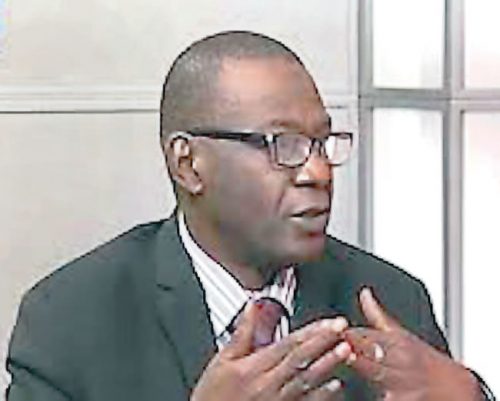According to Alhaji (Dr.) Aminu Gwadabe, president of the Association of Bureaux De Change Operators of Nigeria (ABCON), the naira’s volatility is being exacerbated by rising inflation, an increase in interest rates, and sluggish economic growth, which has an impact on middle- and low-income earners.
Speaking at the weekend in Lagos, Gwadabe claimed that the scenarios as they are developing increase the danger of stagflation, which could have detrimental effects on the economy’s poor.
He stated that it is already anticipated that global growth will slow from 5.7% in 2021 to 2.9% in 2022, which is significantly less than the 4.1% that the International Monetary Fund (IMF) predicted in January.
Gwadabe advocated for increased domestic production and a shift away from oil in order to keep the Nigerian economy thriving in the face of these difficulties.
In May, inflation reached an 11-month high (17.71%), according to him, and the naira trades at N614 to $1 in the black market. Dollar bids are also continuing to rise.
According to the ABCON CEO, these incidents are reducing household purchasing power. “The persistent increase in food prices is the primary cause of inflation. From 18.37% in April to 19.50% in May, the average price level of the food basket increased by 1.13 %. Increased government funding for agriculture and pro-agriculture policies can turn this around, he said.
According to Gwadabe, there are opportunities to tap into Nigeria’s sizable population and diaspora market, which brings in an estimated $20 billion annually.
Increasing the dollar receipt points through more than 5,000 Bureaux de Change operators, according to him, can intensify dollar inflows and significantly strengthen Nigeria’s foreign exchange position.
Read Also: 2023: In Sokoto, 3 APC gubernatorial candidates defect to the PDP.
According to Gwadabe, BDCs continue to be a major route for remittances from the diaspora to enter various nations.
According to him, BDCs continue to be at the forefront of economic growth and have the ability to draw in the necessary funding for the expansion of the Nigerian economy and the forex market.
The ABCON thinks that having access to multiple forex revenue streams will help BDCs succeed by expanding the market, stabilising the naira, and expanding their business operations.
“BDC operations will be boosted and the forex market will gain depth if they become one of the channels through which the $20 billion in remittances from the diaspora each year enter the economy. Operators of Nigerian BDCs are aware of the enormous opportunities offered by remittances from the diaspora and want to do more to draw in foreign investment. Reason being that remittances are known to assist less fortunate recipients in meeting their basic needs, funding both cash and non-cash investments, financing education, fostering start-up businesses, paying off debt, and, ultimately, driving economic growth, according to Gwadabe.
Additionally, according to Gwadabe, effective implementation of the “RT200 FX Programme,” or “Race to $200 billion in FX Repatriation” policy of the apex bank, which was unveiled in February, will increase the economy’s inflow of foreign currency.
According to him, the programme is a collection of non-oil export policies, plans, and initiatives that will help Nigeria achieve its ambitious but doable goal of remitting $200 billion in foreign exchange, solely from non-oil exports, over the course of the next three to five years.
According to Gwadabe, the RT200 FX Programme is one of the tactics that can help Nigeria generate more consistent and long-term inflows of foreign currency.


